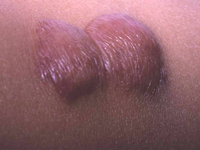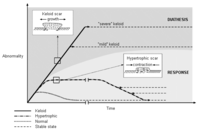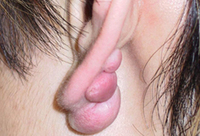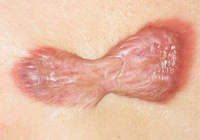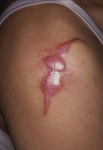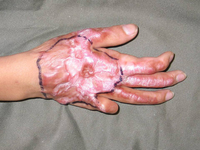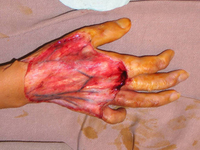Images and videos
Images
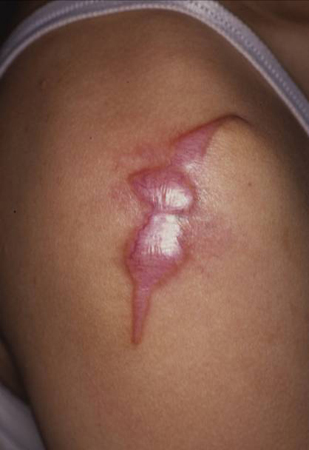
Keloid
Keloid reaction following a vaccination in the deltoid region; following surgical excision the entire length of the scar developed a keloid-like appearance
From the collection of Professor Andrew Burd, used with permission
See this image in context in the following section/s:
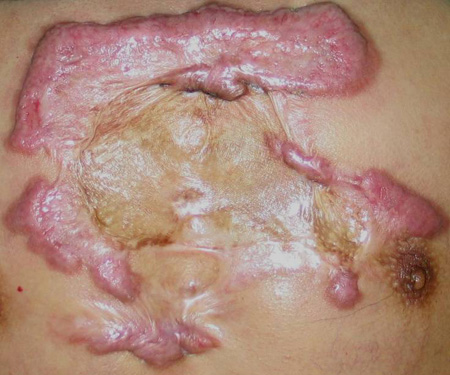
Keloid
An extensive keloid has been previously excised and the defect skin grafted; keloid scarring has subsequently developed at the peripheries
From the collection of Professor Andrew Burd, used with permission
See this image in context in the following section/s:
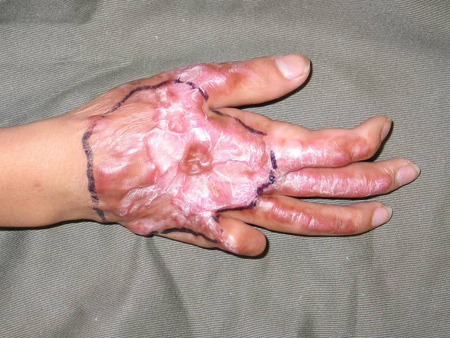
Keloid
A hypertrophic scar before excision to correct contraction deformity following a burn
From the collection of Professor Andrew Burd, used with permission
See this image in context in the following section/s:
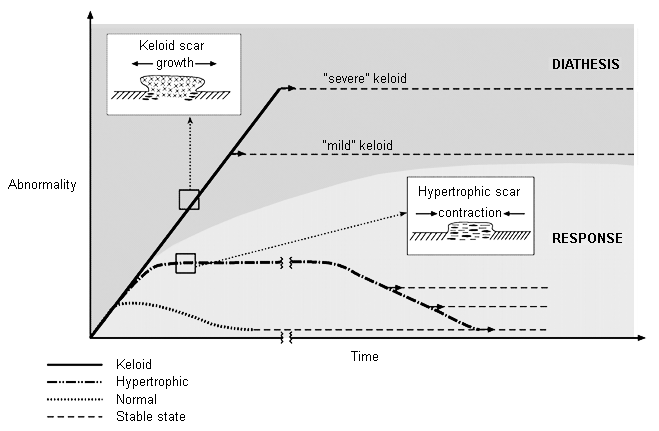
Keloid
The timelines for normal, hypertrophic, and keloid scar formation. Keloid scarring is different in that it does not mature (involute); expansion may occur but, in contrast to hypertrophic scarring, contraction does not occur either in the scar or in the surrounding tissue
From the collection of Professor Andrew Burd, used with permission
See this image in context in the following section/s:
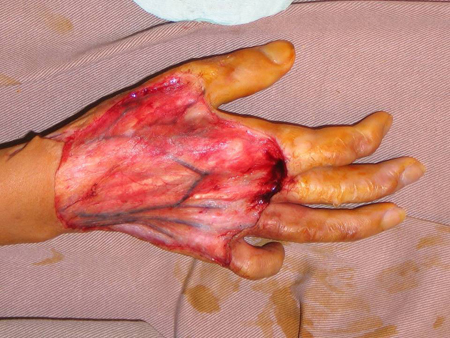
Keloid
Contraction deformity of little finger corrected by excision
From the collection of Professor Andrew Burd, used with permission
See this image in context in the following section/s:
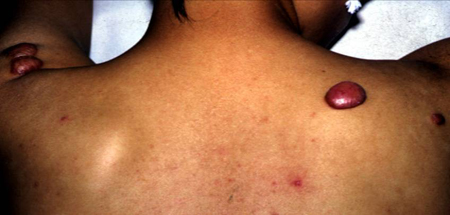
Keloid
Elevated, red, smooth, nodule of scar tissue; arose in the site of an acne lesion that had been squeezed
From the collection of Professor Andrew Burd, used with permission
See this image in context in the following section/s:
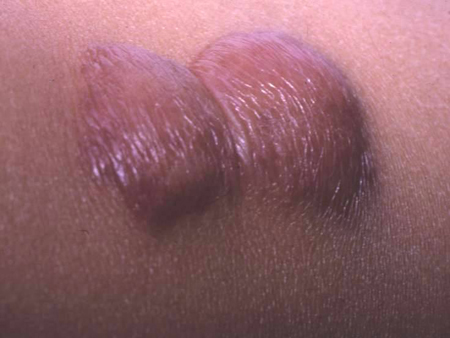
Keloid
Red, elevated keloid; edges blend into the surrounding skin; arose in a vaccination site in the left upper arm
From the collection of Professor Andrew Burd, used with permission
See this image in context in the following section/s:
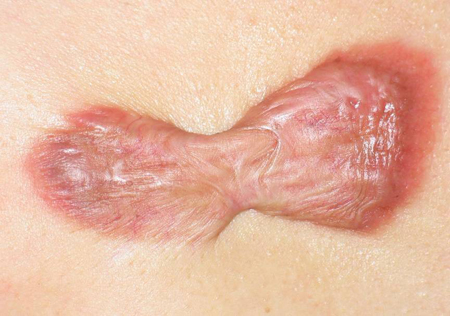
Keloid
A typical presternal keloid; presence of central bridging, an elevated rolled edge and flattened peripheral extensions
From the collection of Professor Andrew Burd, used with permission
See this image in context in the following section/s:
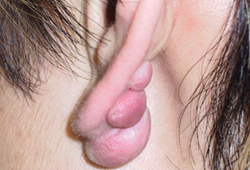
Keloid
Stable keloid due to ear piercing
From the collection of Professor Andrew Burd, used with permission
See this image in context in the following section/s:
Use of this content is subject to our disclaimer

